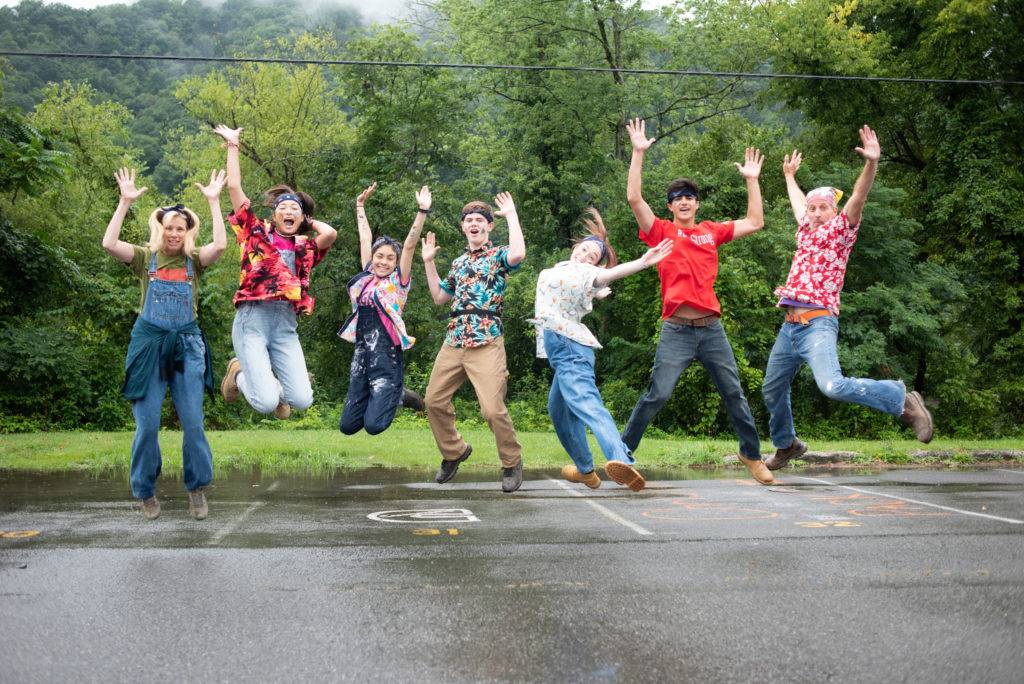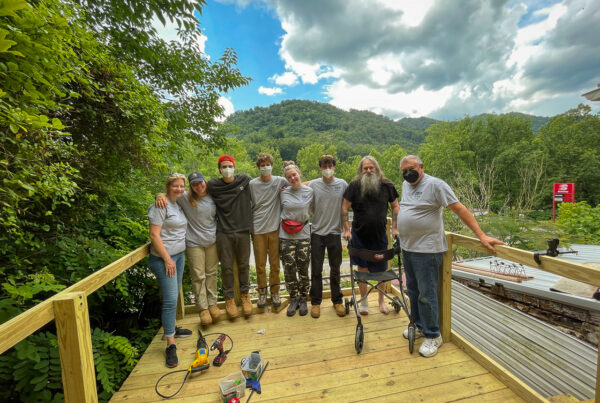Fundraising 101: Deconstructing the Stress of Fundraising
By Hattie Koher
—
Fundraising as Ministry
I’m not very good at asking people for things. When I started working in youth ministry about twelve years ago, I quickly realized how much of my time I was going to have to spend not only asking people to volunteer for things I was leading, but how much I was going to have to ask people for money.
Our church sends about 90 people on its youth ASP trip each summer, and the trip is paid for two ways – by people paying to go on the trip, or through fundraising. Our ASP budget exists, in other words, entirely outside of the church’s operating budget. That’s a lot of fundraising.
While I don’t like asking people for favors, I have grown to embrace the fundraising process as something entirely different than that. When we’re fundraising for ASP, we have the honor of inviting people to participate in God’s work with us.
During the fundraising process, we give space for young people (and adults) to share their stories about how being a part of an ASP trip has changed their lives and given them a transformed sense of direction for their future. We invite our church families to celebrate the opportunity to financially invest in continuing to create opportunities for lives to be changed, both at home and in Central Appalachia.
And we’ve found that people give of their resources freely and generously when they see evidence of changed lives. Fundraising for ASP trips offers a way of sharing the trip with a broader community, and leads to building an even bigger community.
Fundraising Strategies
Whether you think of fundraising as a fun series of events or a necessary but unpleasant task, it’s a key part of your ASP trip preparation. Here are a few ideas to take the stress out of fundraising for your trip.
1. Make a Plan
Start early & be intentional. I’m a full time youth minister, and ASP is a key part of our high school youth ministry program. Each May, I draw out our calendar for the entire following school year, and all the key ASP trip preparation meeting dates as well as major fundraiser dates go on that calendar. Then, in September, when registration opens for the following summer’s trip, all the major fundraiser dates are included.
Here’s what our major fundraiser calendar typically looks like:
- Fall – all church Rummage sale
- January – Annual Chili Cook off
- February – Euchre Tournament
- March – ASP Sunday – our ASP team leads worship, and we host a lunch and silent auction after.
There are a few others that youth can participate in, but those are the four we promote as major fundraisers for our annual trip. The minor ones might include Lou Malnati pizza sales, Puravida bracelets, working for Spring Rummage Drop-off, stock sales or letter writing, physical labor jobs for members of the congregation, etc. While youth are able to make significant money through many of those minor ones, they are not times when our team is in front of the church asking for significant financial support for our trip.
We focus intentionally on a few big ones where we know we’ll make a significant amount of money so that we avoid both planner and donor fatigue. We also aim to keep the minor fundraisers directed at people outside of our church family to both increase awareness about our trip as well as spread the pool from which we are asking for financial support.
2. Rely on teams
When it comes to planning fundraisers, I don’t do any of it on my own, nor do I have one team that handles all the fundraising. Instead, we have various teams of parents and trip adult leaders for each event. A parent that has a big role in coordinating the silent auction, for example, might show up to eat chili or play euchre, but they likely aren’t involved in planning either event.
This takes the pressure off not only me, but all of our fundraising people. It also gives people the opportunity to think about their gifts and interests, and plug in where they feel most excited about working. A parent that is really good with excel spreadsheets, for example, coordinates the ticket sales for our big lunch, while a different parent who has an artistic eye takes lead on the decorations.
3. Youth Visibility
When youth register with our church for an ASP trip, they fill out a registration form that, among other things, specifies the per person deposit required to register for the trip. The trip cost total is also presented, along with the date that final payment will be due, but with the caveat that after the deposit, it is possible for a youth participant to fundraise the remaining balance of their trip.
Our fundraising structure is set up such that when a youth trip participant shows up to work at a fundraiser, they receive a portion of the funds raised at that fundraiser toward their trip balance. If they don’t show up to work at a fundraiser, they don’t get money credited toward their trip balance. Some of the youth on our trip fundraise their entire trip, minus their deposit. A few of the youth on our trip pay their deposit, and then the rest of their trip cost when it’s due in June. But the majority show up at most of the fundraisers and fundraise about two thirds of their trip.
There are three reasons this structure works well for our trip fundraising process:
- Youth have an incentive to actively participate in the fundraising process.
- Most of our trip youth feel as though they have skin in the game – they have worked hard to earn their spot on our trip.
- It drastically increases the youth visibility to the community in which we fundraise. Donors see and hear directly from the youth (and trip adults) that their money will financially support. They learn names, faces, and stories of people who are working hard to be able to go (work hard) on an ASP trip. In other words, they directly see the return on their investment.
4. Gratitude
After experimenting with a number of signs of gratitude for financially supporting our trip, we’ve simplified our approach. First, any time our ASP team is given space during worship to promote fundraisers or share about our trip (on our ASP Sunday in the spring, and typically also the Sunday after we return from our trip), we are intentional about naming the fact that our trip would not be possible without the financial support of our church family. We thank our church family for participating in our church’s ASP ministry with us.
We also host what we call our “ASP Thank You Lunch” a few weeks after we return home from our trip. This happens to be mid-August for us. Anyone who has financially supported our trip is invited to a free lunch Sunday after worship. At the lunch, we share a video compilation from our trip as well as a few stories, as our way of sharing what our donors’ support made possible. It’s a simple gesture, but it nicely frames a year of ASP prep and gives a space for celebration and gratitude before we launch the fall and the process begins again.
Fun-raising
Fundraising may not be the part of your ASP trip you’re most excited about; it may even be the part you dread the most. The part about an ASP trip that excites me the most is seeing evidence of changed lives throughout and after a trip. And as it turns out, fundraising events seem to offer one of the best opportunities for me to hear direct stories about how ASP trips have changed the lives of people on the trips I get to lead.
So when you’re facing a mountain of tasks for an upcoming fundraising event, I invite you to remember that these are opportunities to invite people into God’s work with you. It doesn’t make the to do list shorter, but it is exciting to notice how a larger church community feels a part of your church’s ASP ministry. It is fundraising, after all, that not only invites them into this particular ministry, but helps them spread the word about what ASP is, and how lives are changed every day though connection with ASP.
Hattie Koher is Director of Youth Ministry at First United Methodist Church of LaGrange, IL. She’s a longtime ASP volunteer, former staffer, and current member of ASP’s Board of Directors. She lives in LaGrange Park with her husband and their (future-ASP volunteer) three year-old son.




